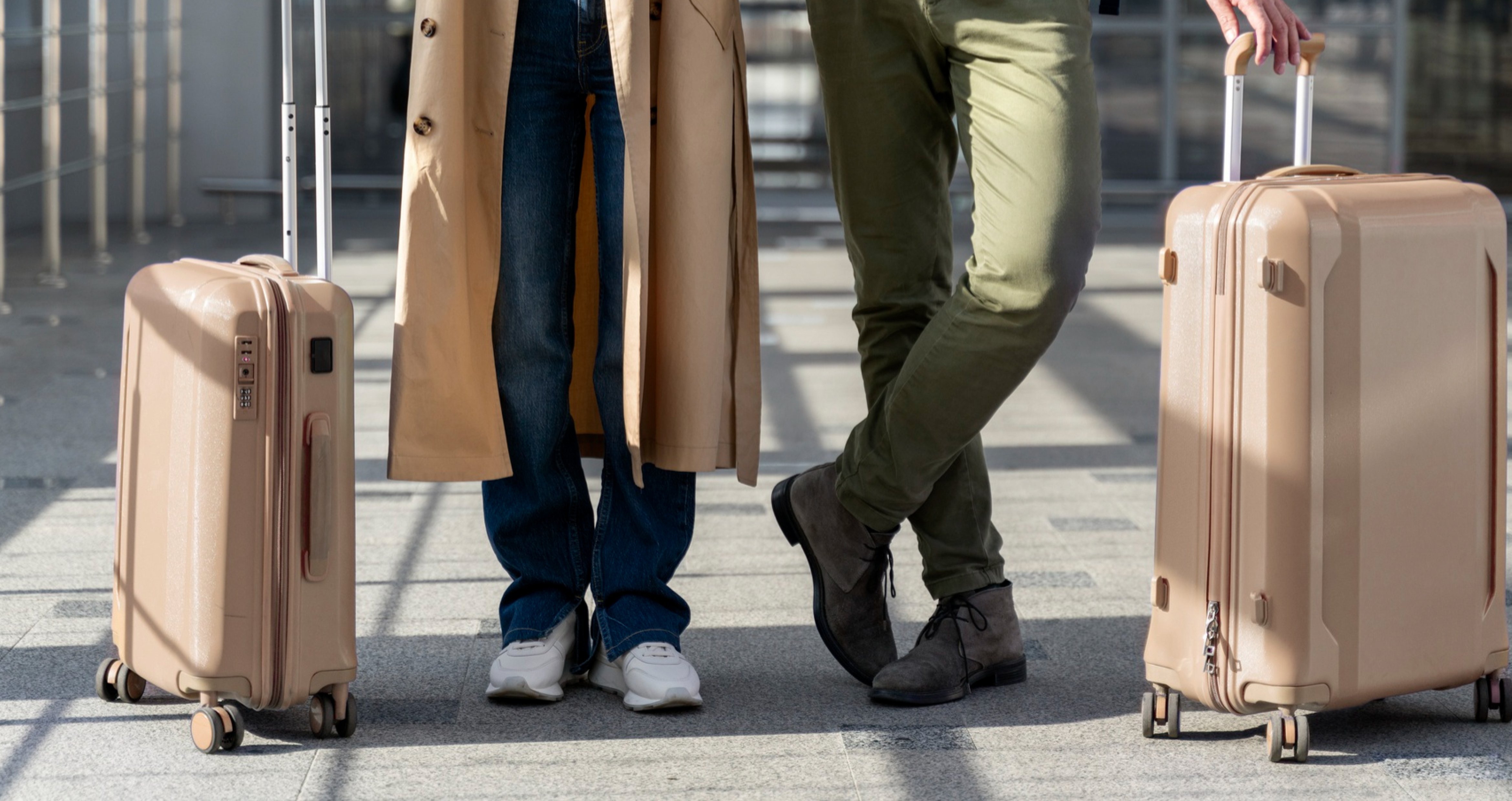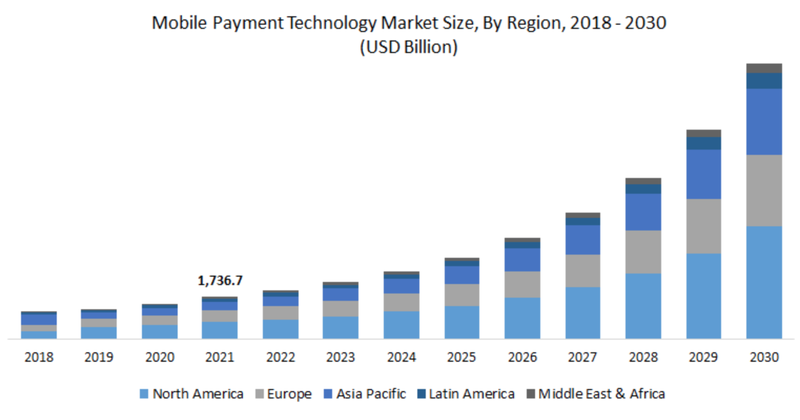Top 7 mobile travel trends that tourism service providers need to consider

Why do tourism service providers engage?
Tourism service providers can expand their business opportunities by applying mobile technologies. There’s so much emphasis placed on consumers’ mobile behavior by brands, so industry professionals can make travel ever more appealing and accessible via mobile applications.
By following the mobile-first approach and related trends, hospitality and tourism brands can:
- take away the stress of travel
- increase conversion rates
- boost revenues
- target each customer individually
- acquire and retain customers
- promote services at the right time and place
- increase brand advocacy and loyalty
What mobile travel trends can keep travel brands competitive?
Technology is a go-to tool for reaching the modern consumer. Tourism service providers should always be alert to the latest trends in mobile tech. We’ve identified the most promising travel trends to help you decide where to invest.
Trend #1 Establishing connections before, during, and after the trip
Most hospitality and tourism brands have been interested in the concept of owning the traveler. They want to offer travelers not only airline seats and hotel rooms. Industry players want to keep consumers engaged before, during, and after trips.
Business and leisure travelers can’t fully rely on a travel agent to curate their travel experiences. Applications can act like personal assistants available 24/7 to guide users before, during, and after trips. For example, airlines can provide pre-travel flight statuses and traffic updates. Apps can offer mobile airport mapping to guide travelers through airports, or better yet enhance experiences on board with mobile in-flight entertainment. Additionally, applications can extend experiences at the destination by facilitating ground transportation bookings and destination activities.
Airbnb wants to become not just an app that helps users book accommodation but an all-inclusive travel company. With its relatively new Trips feature, Airbnb lets users experience activities at their destinations. The Airbnb application suggests activities like horseback riding or fishing. What’s more, users can see authentic local places recommended by local users.
Opportunities that applications can bring don’t limit tourism service providers to just one service. They let hoteliers and airlines establish lasting connections with customers who will consequently want to do repeat business with their favorite travel service provider.
Trend #2 On-demand conversations
Today, many people use voice to search for things. Travelers are becoming a lot more comfortable having conversations with bots and virtual assistants than they were just a few years ago. One in three travelers across the globe is now interested in talking to a digital assistant to research or book travel according to research by Google. People can find out about the best flight options and departure times or book a hotel room or Uber ride hands-free. Users can manage all aspects of a trip through voice by means of smartphones, smartwatches, home devices, and in-vehicle infotainment systems. In other words, tourism service providers can get a lot more conversational with customers thanks to mobile technologies.
For example, chatbots can provide customer service, educate customers, and sell products and services. Hipmunk is an online travel company located in San Francisco. Its AI-powered chatbot assistants for Facebook Messenger, Slack, and Skype allow users to ask Hello Hipmunk questions such as When is the best time to go to Iowa from Washington? or What is the cheapest hotel chain in Florida? Hello Hipmunk works for group chats too, so planning family trips is possible without leaving the chat room.
Alexa, Amazon’s virtual assistant, has numerous capabilities, yet her most-used skill is search. In 2016, Google announced that 30 percent of its search queries related to specific locations. These two facts suggest that voice search is increasingly important to travelers.
Kayak has recognized this trend and lets its users ask Alexa to book flights, hotel rooms, car rentals, and activities as well as to figure out where they can travel on a certain budget.

Source: Clickz.com
Natural language processing technology is sure to open new destinations and travel experiences for as many as another billion mobile users.
Trend #3 Experiments with progressive web apps
The travel industry has been disrupted by the rise of the internet and mobile devices. Users are moving from desktop to mobile, but they still want access to all the features they enjoy on a desktop website. That’s why travel brands need to consider the capabilities of progressive web apps (PWAs). PWAs encompass a collection of APIs that allow mobile websites to provide the functionality of native apps, such as offline access and push notifications. An SEO-friendly PWA website can reduce operating costs. For example, with a PWA there’s no need to support both a website and mobile apps. A PWA can also provide travelers with a rich and dynamic experience like they would get from a native app.
Trivago’s website has successfully evolved into a PWA. It’s available in 33 languages across 55 countries. Since the company adopted the PWA approach, it’s seen 150% growth in user engagement and many return visits, and the company has improved their conversion rate by 97%.
PWAs still have limitations, though. Namely, Safari doesn’t fully support PWAs in terms of push notifications and offline mode. Since PWAs are developing fast, we’ll see improvements very soon.
Trend #4 Decentralized sharing economy or the blockchain
Everyone is talking about the blockchain. But how can this technology improve the travel industry?
A blockchain consists of a distributed ledger of records that make up data batches, or so-called blocks, with subsequent connections. In order to link blocks, cryptographic validation is necessary. The best part of a blockchain is that the ledger can’t be stored in a single location and belong to a single individual or organization. Instead, a blockchain is distributed among all participants. A blockchain lets these participants, who aren’t dependent on intermediaries, know that the information on the blockchain is reliable. This is actually exciting news for the travel industry since establishing trust is crucial in today’s connected world.
The travel industry can leverage the potential of smart contracts on blockchains. Smart contracts can help people exchange money, property, shares, or anything of value transparently and securely. With a smart contract, there’s no need for an intermediary to facilitate transactions. By enabling peer-to-peer interactions, the blockchain results in a truly decentralized sharing economy.
For example, all hotel properties in a city could be featured in a blockchain database. Companies could still help users find accommodation and offer a curated list of hotels. However, anyone would be able to source rooms from the blockchain. This market would lead to an increase in competition by removing intermediaries who set distribution rates.
The world’s largest tourism company, TUI Group, has moved all its contracts to its private blockchain, having built a system to manage their rooms. TUI Bed-Swap powered by a blockchain offers empty rooms within seconds. TUI expects its profits to grow by delivering services in this way. Air New Zealand is also turning to blockchain technology to improve services such as booking and baggage tracking.
Trend #5 Personalized offers
Travel brands can deliver better service and increase conversion rates if they manage to target customers with relevant, personalized offers. For example, if a brand knows what kind of room a traveler prefers or what class they’re likely to fly, they can make customers loyal to the brand by offering exactly what a client wants. 57% of travelers want companies to tailor information to their personal preferences or past behavior according to Google. What’s more, Oliver Heckmann, Google’s VP of engineering for travel and shopping, says that people want better, more personalized experiences when accessing travel information. If he were to pull out his phone and search for a nearby hotel or restaurant, he’d expect the information to be tailored for him based on his location, time of day, and even past interests. Brands need to get to know their users using three vital metrics: time, location, and context. These metrics can help travel brands better connect with customers.
By using predictive analytics, industry professionals can get personalization right. Machine learning has been the major driver of predictive analytics.
Machine learning is an artificial intelligence (AI) technique that identifies patterns in large amounts of data. The more data an AI system collects, the more precise patterns it can detect. Leveraging data can help major players in the industry deliver personalized experiences.
Starwood Hotels has done pretty well with AI and big data. The Starwood app learns more and more each time a customer stays at a Starwood hotel. The app can track each visitor’s interests over time to suggest activities and recommendations. The application also changes its offers when it detects that a user has entered one of its hotels. In addition, the hotel chain uses data collected by the app to figure out how to price their inventory at different seasons for customers before and during their stays.
Trend #6 Instant mobile payments
Mobile payments have drastically transformed consumer purchasing habits. With the growing reliance on smartphones and tablets, mobile commerce has seen significant expansion. In 2023, the global revenue from mobile payments reached $92.2 billion, showing a marked increase from $77.2 billion in 2020. This growth highlights the rising popularity and adoption of mobile payment technologies across the world.

Source: Polarismarketresearch.com
People are becoming more accustomed to paying through their mobile devices with one tap. There’s much potential for travel brands if they embrace this trend. Technologies such as mobile e-wallets and enhanced connectivity via near-field communications (NFC) and Bluetooth are transforming the way people pay for goods and services. Apple, Google, and Samsung want to grow more confidence in users with their own versions of mobile wallets to convert users in the years to come. Moving into 2021, blockchain technology will also breathe new life into mobile payments, offering better security, lower fees, and instant payments.
Travelers can use their smartphones to pay for services, upgrade flights, access club lounges, and buy duty-free goods with just a click. Instant mobile payments simplify the typical purchasing journey. With mobile payments, there are fewer reasons to not complete transactions because they’re less time-consuming. As a result, revenues from instant mobile payments will increase.
For example, HotelTonight owes its success to prioritizing top-rated hotels on its mobile browser and reducing the number of taps needed to complete transactions.
Travelers want one-click bookings that are fast and easy. They want to buy tickets and reserve rooms with minimum hassle, and that’s what mobile payments deliver.
Trend #7 Last-minute bookings
Some people plan trips in advance, make bookings ahead of time, and stick to a strict itinerary. Other people are a bit more spontaneous. If the opportunity to travel suddenly presents itself, they take the chance. This category of people prepares for trips at the last minute.
Last-minute hotel booking is another emerging trend. People may book stays the same week they arrive or even the same day. This behavior is embraced by travelers in their mid-20s and 30s. By and large, this trend results in a mobile-dependent lifestyle, or the let’s-book-it-now culture.
Last-minute booking applications consist of simple features to help users reserve a room or buy a plane ticket in a few clicks. Hoteliers and airlines can promote their services by collaborating with last-minute booking apps. For example, HotelTonight reveals available rooms every day afternoon local time.
Unforgettable let’s travel moments with mobile tech at their core
Mobile travel trends in 2025 are bringing new ways to engage with consumers. Brands no longer apply the just-build-an-app approach, but want to create more of an enhanced customer experience before, during, and after trips. With a clear understanding of the most popular predictions and trends, industry professionals can decide where their major investment should go.